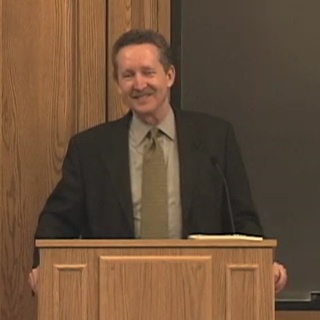
This is the last of four lectures given by Prof. Donald Lopez at Yale University as part of the Dwight H. Terry Lecture Series on Religion and Science. The first one was shown here, the second one here, and the third one here.
In this lecture Prof Lopez reviews what he has been previously discussing about the relationship, and presumed relationships, between Buddhism and science, and how that has changed over the past one and a half centuries, which encompassed developments through a rational, early Buddhism (shorn of much of its material), and zen period in the 60s and 70s, and recently a relationship based on Tibetan Buddhism, which was once the despised outcaste of the Buddhist fold.
Prof Lopez sees little to no benefit in the Buddha being a presumed soothsayer who could knew the theories of relativity or evolution thousands of years before they were postulated, but he does feel that research into the neuropathology of the brain using monastics with high degrees of meditation levels as subjects, may yield some useful results, which may in fact help both sides understand what is happening in meditation better.
Prof Lopez also has an interesting discussion about the aims of Buddhist meditation, which is now co-opted in the west as a stress reduction practice, whereas in traditional Buddhism if anything it was mainly aiming at increasing stress so as to increase spiritual anxiety, and thereby striving, in the monastic practising it.
All-in-all these lectures have been provocative, ground breaking in many ways, and a fresh look at a subject which has often been hashed at best, and Prof Lopez’ humour and good story telling techniques keeping the interest, while getting over many pertinent and interesting points.
if the video does not appear on the page, try reloading the page; and if that doesn’t work, leave a comment so I can update the page (the comment is not published)
to see an album of screenshots click here
